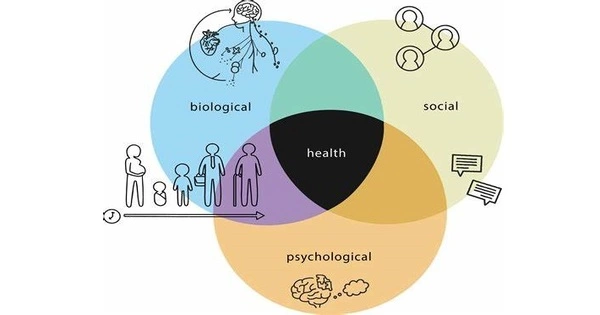Health psychology is the study of psychological and behavioral processes in health, illness, and healthcare. It focuses on how psychological factors such as thoughts, emotions, behaviors, and social interactions affect health and well-being. The discipline is concerned with determining how psychological, behavioral, and cultural factors influence physical health and illness. It investigates how psychological processes influence physical health and how physical health, in turn, can affect psychological well-being.
Psychological factors can have a direct impact on health. Chronically occurring environmental stressors, for example, that affect the hypothalamic-pituitary-adrenal axis can be harmful to health in the long run. Behavioral factors can also have an impact on a person’s health. Certain behaviors, for example, can harm (smoking or excessive alcohol consumption) or improve (exercise) health over time.
A biopsychosocial approach is used by health psychologists. In other words, health psychologists believe that health is the result of not only biological processes (such as a virus or tumor), but also psychological (such as thoughts and beliefs), behavioral (such as habits), and social processes (such as socioeconomic status and ethnicity).
Health psychologists study a variety of topics related to health and illness, including:
- Health Behavior Change: Examining the influences on health-related behaviors such as smoking, exercise, diet, and medication adherence. Health psychologists design and implement interventions to encourage healthy behaviors and discourage unhealthy ones.
- Stress and Coping: Examining the effects of stress on health and the coping mechanisms that people use to deal with stressors. Chronic stress has been linked to a variety of health issues, so learning effective coping strategies is essential for overall well-being.
- Chronic Illness and Disease Management: The psychological aspects of living with chronic conditions such as diabetes, cardiovascular disease, and cancer are being researched. Understanding how people cope with the emotional and practical challenges of living with a chronic illness is part of this.
- Pain Management: Examining the psychological aspects of pain perception and developing strategies to help individuals manage and cope with pain, especially in the context of chronic conditions.
- Psychosocial Factors in Health: Investigating how social and psychological factors, such as socioeconomic status, social support, and cultural influences, impact health outcomes.
Health psychologists work in a variety of settings, such as hospitals, clinics, universities, research facilities, and public health organizations. They work with other healthcare providers to create holistic approaches to health and wellness.
In understanding health and illness, health psychology emphasizes the integration of biological, psychological, and social factors. It is critical in improving overall healthcare quality by addressing psychological aspects of health and promoting behavior change for better health outcomes.
















